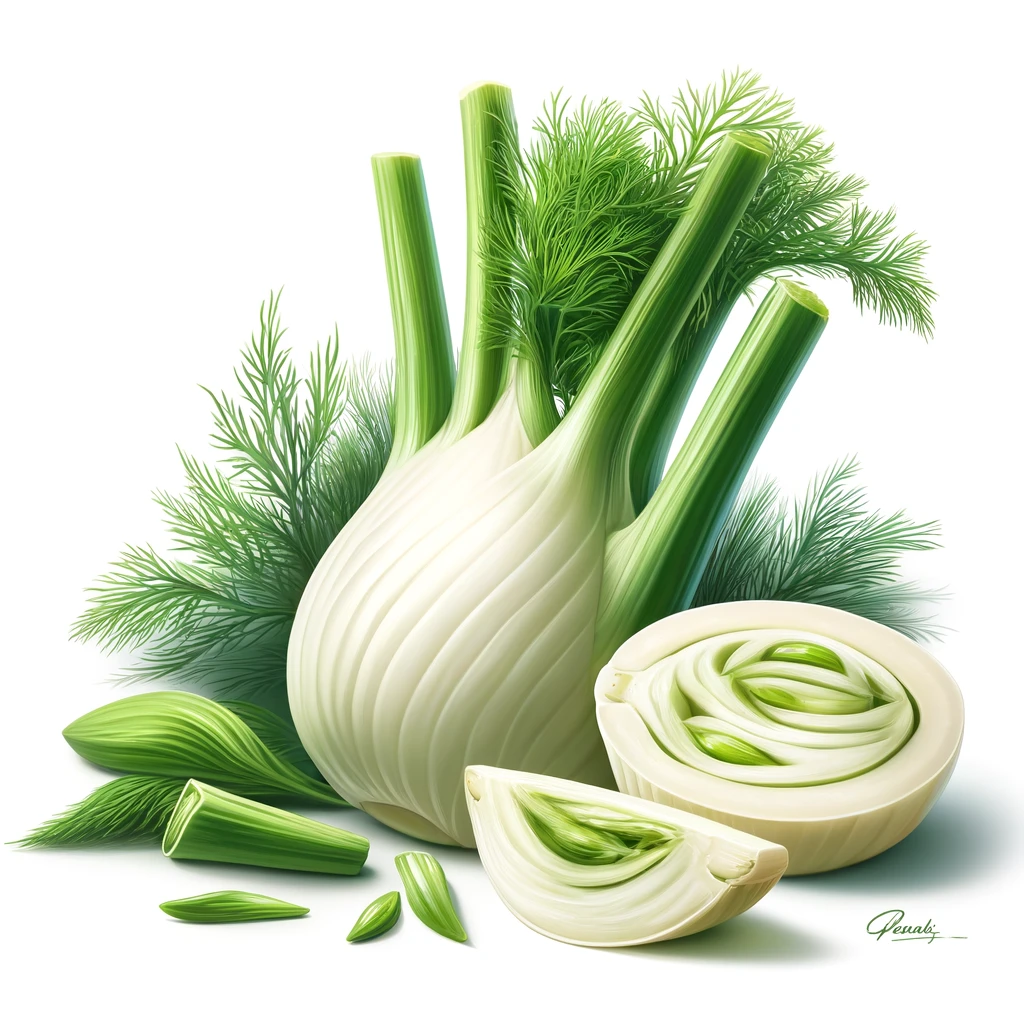Fennel, a highly aromatic and flavorful herb with a taste reminiscent of licorice, has been celebrated for centuries not only for its culinary uses but also for its remarkable health benefits. This versatile vegetable is packed with nutrients that can boost overall health and well-being. Whether consumed raw, cooked, or as a spice, fennel offers a multitude of health advantages that make it a worthy addition to your diet. Let’s delve into the nutritional content and the myriad ways fennel supports optimal health.
Nutritional Content
Fennel is a nutrient-dense vegetable, a 100-gram serving of raw fennel bulb typically includes:
- Vitamins:
-
- Vitamin C: A potent antioxidant, vitamin C helps boost the immune system, aids in collagen production for skin health, and enhances the absorption of iron from plant-based foods.
- Vitamin A: Important for maintaining healthy vision, skin, and immune function.
- Vitamin K: Essential for blood clotting and bone health.
- Minerals:
-
- Potassium: Helps regulate blood pressure and maintain proper heart function.
- Calcium: Vital for bone health and plays a role in muscle function and nerve transmission.
- Magnesium: Supports muscle and nerve function, blood sugar control, and bone health.
- Iron: Essential for the production of hemoglobin, which carries oxygen in the blood.
- Phytonutrients:
-
- Anethole: The primary component of fennel’s essential oil, anethole has potent anti-inflammatory, antimicrobial, and anticancer properties.
- Flavonoids: Such as quercetin and kaempferol, which have antioxidant and anti-inflammatory effects.
- Dietary Fiber: Fennel is rich in dietary fiber, which supports digestive health, aids in weight management, and helps regulate blood sugar levels.
- Macronutrients: Fennel is low in calories, fat, and carbohydrates, making it a great addition to a balanced diet.
Health Benefits
- Digestive Health: Fennel has long been used to aid digestion. Its high fiber content promotes regular bowel movements and prevents constipation. Additionally, the essential oils in fennel stimulate the production of gastric juices, enhancing the digestive process and reducing bloating and gas.
- Heart Health: The potassium in fennel helps maintain healthy blood pressure levels, while its fiber content can help reduce cholesterol levels. The antioxidants in fennel, including vitamin C and flavonoids, also support cardiovascular health by reducing inflammation and preventing oxidative stress.
- Bone Health: Fennel is a good source of calcium, magnesium, and vitamin K, all of which are crucial for maintaining strong and healthy bones. Regular consumption of fennel can help prevent bone-related disorders such as osteoporosis.
- Immune Support: The high vitamin C content in fennel enhances the immune system by stimulating the production of white blood cells and protecting cells from damage caused by free radicals. This helps in fighting off infections and keeping the immune system robust.
- Hormonal Balance: Fennel contains phytoestrogens, which are plant-based compounds that mimic the effects of estrogen in the body. This can be particularly beneficial for women experiencing hormonal imbalances, such as those related to menopause.
- Anti-inflammatory and Antioxidant Properties: The phytonutrients anethole and flavonoids found in fennel have significant anti-inflammatory and antioxidant effects. These compounds help reduce inflammation, lower the risk of chronic diseases, and protect against cellular damage caused by free radicals.
Culinary Tips and Considerations
To incorporate fennel into your diet and maximize its health benefits:
- Salads: Thinly slice raw fennel bulb and add it to salads for a refreshing, crunchy texture.
- Roasting: Roasting fennel enhances its natural sweetness and makes a delicious side dish.
- Soups and Stews: Add chopped fennel to soups and stews for added flavor and nutrition.
- Herbal Tea: Fennel seeds can be brewed into a soothing tea that aids digestion and provides a calming effect.
Conclusion
Fennel is much more than just a flavorful herb; it is a nutritional powerhouse that offers a wide array of health benefits. From promoting digestive health and supporting heart function to enhancing bone health and balancing hormones, fennel’s diverse range of nutrients and phytonutrients make it an excellent addition to a healthy diet. Incorporating fennel into your meals is a simple yet effective way to boost your nutritional intake and support overall health.





